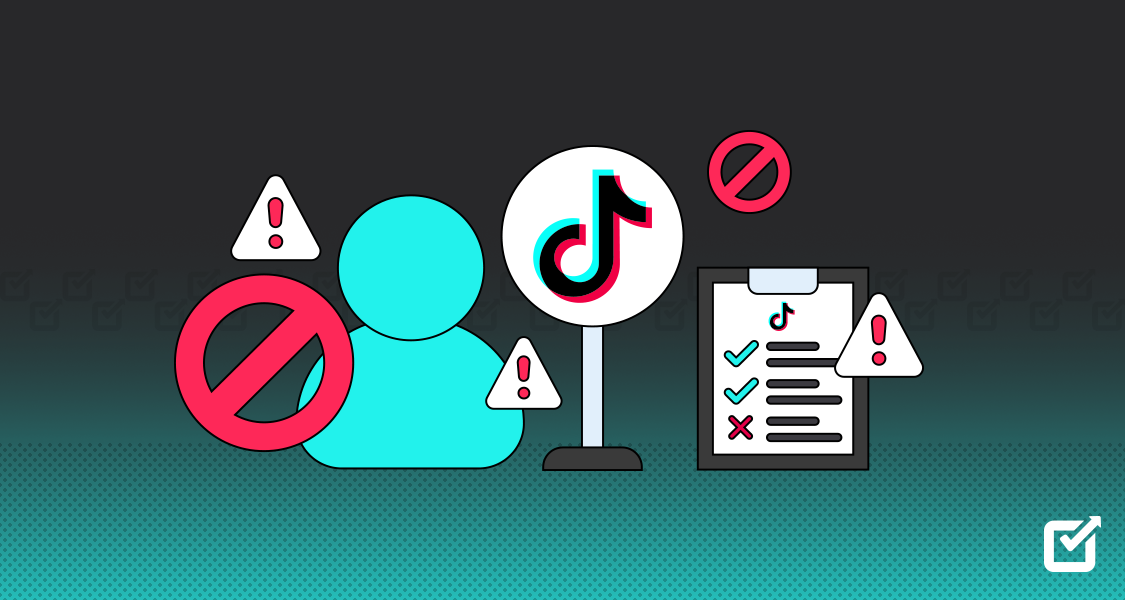Do you know what separates the top 1% of brands from everyone else?
It’s not luck. It’s not even talent (though that helps).
According to research, 77% of consumers purchase when the CEO of a brand is active on social media. That’s PERSONAL BRANDING!
Your social media presence can make or break your career, whether you’re an author, editor, agent, or any other professional.
Social media is always changing. What worked last week might not cut it today.
But if you have a personal brand that stands out, you are at the right place.
In this blog, we’ll share 15 proven tips to elevate your personal brand on social media in 2024, along with the social media management tools that can take your efforts to the next level.

Own Your Social Presence with Precision!
Why settle for average when you can master the art of social media? With Social Champ, craft smarter posts, automate your workflow, and turn data into action.
Short Summary
- A strong personal brand on social media can significantly boost career success by building credibility, attracting opportunities, and growing your network.
- Research shows that 77% of consumers are more likely to purchase when a CEO is active on social media, highlighting the power of personal branding.
- Key strategies include defining your brand identity, optimizing profiles, creating a content strategy, leveraging visuals, and networking with peers.
- Monitoring analytics, using hashtags wisely, collaborating with influencers, and continuously adapting to social media trends is crucial for sustained success.
- Tools like Social Champ, Canva, Buffer, and Hootsuite help manage and enhance personal brands on social media efficiently.
- Consistent, authentic engagement and valuable content make a personal brand stand out and resonate with the audience.
- Examples of effective personal brands, like Gary Vaynerchuk and Marie Forleo, demonstrate the impact of authenticity, consistency, and audience engagement.
The Importance of Understanding Your Personal Brand on Social Media
Your personal brand on social media is more than just a digital footprint; it’s precisely who you are and what you stand for.
Think of it as your online persona that reflects your values, expertise, and personality.
A strong personal brand opens doors to new opportunities, builds trust and credibility, and sets you apart from the competition, driving personal and professional success.
Let’s discuss the importance of personal branding and explore some standout personal brands on social media examples.
Builds Credibility
Imagine this: You consistently share insightful articles, thoughtful opinions, and valuable tips related to your field.
Over time, people start seeing you as the go-to person for that subject.
That’s the magic of building credibility.
Whether you’re posting on LinkedIn about industry trends or tweeting your latest insights, showcasing your knowledge helps establish you as a thought leader.
The more you share, the more people trust and respect your expertise.
Simplify Your Social Media Strategy!Sign up now to access game-changing features.Attract Opportunities
Think about waking up to an inbox filled with job offers, speaking engagements, and collaboration requests.
Sounds exciting, right?
A well-crafted personal brand can make this a reality.
When your social media profiles reflect a clear and strong brand, they become a magnet for opportunities.
Employers and collaborators are always on the lookout for individuals who stand out.
By sharing your achievements, skills, and unique value online, you make it easier for these opportunities to find you.
Grow Your Network
Ever thought about connecting with someone influential in your industry but didn’t know how?
Social media breaks those barriers down.
Engaging content and a genuine online presence can help you connect with like-minded individuals and industry leaders.
Join discussions, comment on posts, and share content that resonates with your network.
This active participation can lead to valuable connections, mentorship, partnerships, and even friendships.
Boost Confidence
Think about the times when you’ve received positive feedback on your posts.
It feels great, doesn’t it?
Knowing your strengths and consistently communicating them can boost your self-confidence.
When you understand what sets you apart and share that confidently, it reinforces your self-belief.
This confidence not only shines through in personal interactions but also makes your online presence more compelling.
People are naturally drawn to confident individuals who clearly understand their value.
Featured Article: Social Media Intelligence: What Is It & Why You Need It
Best Tools to Manage Your Personal Brand on Social Media
Managing your personal brand on social media can be time-consuming, but the right tools can streamline the process and enhance your efficiency.
Here are some of the best tools to help you manage your personal brand:
Social Champ

Social Champ dashboard Social Champ is an all-in-one social media management tool designed to effortlessly elevate your social media presence.
Whether you’re a solo entrepreneur, small business owner, or social media manager, Social Champ provides tools to streamline your social media and build a strong personal brand.
Key Features of Social Champ:
- Scheduling Posts: With Social Champ, you can easily schedule posts across multiple social media platforms, including Facebook, X, Instagram, LinkedIn, Pinterest, and Google Business Profile, among others.The intuitive calendar view allows you to plan your content strategy in advance, ensuring a consistent and engaging presence online.
- Tracking Analytics: Gain insights into your social media performance with Social Champ’s analytics tools.
Track engagement metrics, monitor follower growth, and measure the effectiveness of your posts.
This information enables you to make data-driven decisions and optimize your social media strategy for better results.
- Engaging with Your Audience: Social Champ makes it easy to interact with your audience by consolidating all your social media messages in one place.You can respond to comments, messages, and mentions promptly, demonstrating that you value your audience’s input and are approachable.This two-way interaction can help build a loyal following and encourage a strong community around your brand.
- User-Friendly Interface: The platform’s clean and intuitive design ensures a seamless user experience, even for those new to social media management tools.You can easily navigate through different features and manage your social media accounts with minimal effort.
- Strong Features: Social Champ is packed with additional powerful features such as content suggestions, bulk upload, team collaboration, and RSS feed integration.These functionalities allow you to curate high-quality content, collaborate with your team effectively, and automate your social media workflows.
Canva

Canva dashboard Canva is an essential tool for creating visually appealing graphics and content.
With its easy-to-use design templates, you can create professional-looking social media posts, infographics, and more, even if you’re not a design expert.
Featured Article: 20 Recent and Popular Social Media Memes 2025
Buffer

Buffer dashboard Buffer is another great tool for scheduling and managing your social media posts.
It offers detailed analytics and insights, helping you understand what content performs best and when to post it.
Hootsuite

Hootsuite landing page Hootsuite is a comprehensive social media management tool that allows you to monitor multiple accounts, schedule posts, and analyze performance.
It’s particularly useful for managing a cross-platform personal branding strategy.
Grammarly

Grammarly landing page Grammarly ensures that your written content is free of grammatical errors and typos.
Clear and error-free communication is essential for maintaining a professional image on social media.
15 Tips to Elevate Your Personal Brand on Social Media
Define Your Brand Identity
Think of your brand as the essence of how you want to be perceived.
What values are important to you?
What strengths do you bring to the table?
What message do you want to convey?
Taking the time to answer these questions will guide your content creation and ensure that your presence is cohesive across all platforms.

Screenshot of Nike’s best personal brand on social media, showcasing their core mission and values on their website. Practical Tip: Craft a brand statement by distilling your core values, strengths, and mission into a concise message that aligns with your brand’s mission and vision.
Optimize Your Social Media Profiles
Your social media profiles are the first impression many people will have of you, so make sure they’re polished and professional.
Use a high-quality profile picture that reflects your brand. Write a compelling bio that highlights your expertise and personality.

Screenshot of a professional LinkedIn profile with a high-quality profile picture and compelling bio Include links to your website, portfolio, or other relevant resources.
Practical Tip: Regularly update your profiles with recent achievements and current contact info. Keep photos and bios consistent across platforms to build a recognizable brand.
Create a Content Strategy
A well-thought-out content strategy is essential for showcasing your expertise and engaging your audience.
Plan your posts in advance, focusing on topics that align with your brand identity and resonate with your audience.
Mix up your content types—blog posts, videos, infographics, and personal stories—to keep things interesting.

Screenshot of Social Champ’s content calendar showing planned posts and content strategy. Practical Tip: Use a content calendar to plan posts and consistently share valuable content without last-minute stress. Tools like Social Champ can help you be consistent without any stress.

Map Out Your Content Journey with Ease!
Say goodbye to content chaos! With Social Champ’s Content Calendar, effortlessly plan, organize, and visualize your social strategy all in one place.
Be Authentic
Authenticity is the cornerstone of a strong personal brand.
People want to connect with real, relatable individuals, not faceless entities. Share your experiences, including your successes and failures.
Being transparent about your journey makes your content more engaging and relatable.
Practical Tip: Don’t be afraid to show vulnerability. Share stories about challenges you’ve faced and how you overcame them. This provides valuable lessons for your audience.
Engage With Your Audience
Building a personal brand isn’t just about broadcasting your message; it’s also about building relationships.
Respond to comments, messages, and mentions. Engaging with your audience shows that you value their input and are approachable. This interaction can help build a loyal following.

Snapshot of an Instagram post by Starbucks Practical Tip: Dedicate time daily to engage with your audience by replying to comments, thanking shares, or joining discussions. These actions boost engagement and build a stronger community.
Leverage Visual Content
Visual content, such as images and videos, tends to perform better on social media. It captures attention quickly and can convey your message more effectively than text alone.
Tools like Canva make it easy to create eye-catching visuals that complement your posts and reinforce your brand identity.
Practical Tip: Use a consistent color scheme and style for a cohesive look across social media. Experiment with visuals like infographics, memes, and videos to engage your audience.
Post Consistently
Consistency is crucial for maintaining an active and engaged following. It keeps your audience interested and signals that you are a reliable source of information.
Tools like Social Champ allow you to schedule posts in advance, ensuring a steady stream of content without overwhelming you with daily posting tasks.

Infographic about posting schedule by Social Champ Practical Tip: Create a posting schedule outlining when and what content to share. Stick to it to build anticipation and routine, ensuring consistency without needing to post daily.
Featured Article: 7 Best Social Media Search Engines for Marketers in 2025
Collaborate With Influencers
Partnering with influencers in your niche can help you reach a wider audience and build credibility.
Influencers already have the trust of their followers, and their endorsement of your brand can significantly boost your visibility and reputation.
Practical Tip: Find influencers who align with your brand and audience. Reach out with a personalized message proposing collaborations like guest posts, webinars, or co-created content.
Share Valuable Content
Content that provides value to your audience is key to establishing yourself as a knowledgeable and helpful resource.
This could include tips, tutorials, industry news, or personal insights. The more value you provide, the more likely people are to follow and engage with you.
Practical Tip: Stay updated on industry trends to keep your content relevant. Use a mix of formats—articles, videos, podcasts—to cater to your audience’s preferences.
Monitor Your Analytics
Regularly reviewing your social media analytics is essential for understanding what content performs best and what areas need improvement.
Use this data to refine your content strategy and improve engagement.
Most social media platforms offer built-in analytics tools that provide insights into your audience’s behavior and preferences.
Practical Tip: Monitor metrics like engagement, click-through rates, and follower growth. Replicate successful content patterns and adjust your strategy based on data for improvement.
Use Hashtags Wisely
Hashtags can significantly increase the visibility of your posts by making them discoverable to a broader audience interested in specific topics.
Research popular and relevant hashtags in your niche and use them strategically to extend your reach.
Practical Tip: Combine popular and niche hashtags to boost exposure. Use tools like Hashtagify or Social Champ’s hashtag generator to find effective ones.
Network With Peers
Engaging with other professionals in your industry can open doors to new opportunities and collaborations.
Networking is not just about accumulating contacts; it’s about building meaningful relationships that can elevate your personal brand.
Practical Tip: Join industry events, webinars, and forums to connect with professionals. Engage with their content and send personalized messages to build genuine connections.
Continuously Learn and Adapt
Social media trends and algorithms are in a constant state of flux.
Staying updated with the latest trends and being willing to adapt your strategy as needed is crucial for long-term success.
Practical Tip: Stay informed by following industry blogs, subscribing to newsletters, and joining courses or webinars. Be flexible and ready to adapt your strategies as social media evolves.
Promote Your Achievements
Don’t be shy about showcasing your accomplishments.
Whether it’s landing a new job, completing a successful project, or speaking at an event, promoting your achievements can significantly boost your credibility.
Practical Tip: Share your successes humbly with engaging visuals like certificates or event photos. Provide context to show how they align with your brand and goals.
Seek Feedback
Constructive criticism from your audience and peers can provide valuable insights and help you improve your personal brand.
Feedback helps you understand how others perceive you and what areas might need adjustments.
Practical Tip: Ask for feedback through polls, surveys, or messages, and be open to constructive criticism. Acknowledge it publicly to show you value your audience’s opinions.
The Importance of Authenticity and Consistency in Personal Branding
Let’s get real for a minute.
People can spot a fake profile from a mile away. Understanding your personal brand means recognizing your strengths and the message you want to convey.
Authenticity builds trust, and trust is the foundation of any strong personal brand.
Consistency is equally important. Whether you’re posting on LinkedIn, X, Instagram, or any other platform, your brand should have the same tone, style, and message.
This uniformity ensures that no matter where someone encounters you online, they get the same genuine impression of you.
By focusing on these elements, you can build a personal brand that not only stands out but also resonates with your audience, leading to lasting success in your professional endeavors.
Why Personal Branding Matters on Social Media
It’s 2024, and social media is more competitive than ever. Think you can just upload a profile picture and call it a day?
Think again.
A well-crafted personal brand can help you be different from your competitors.
Personal branding on social media is not just about having a polished profile; it’s about consistently communicating your values, expertise, and personality.
Effective Personal Brand on Social Media Examples
Gary Vaynerchuk

Snapshot of Gary Vaynerchuk’s LinkedIn profile Gary Vaynerchuk, known as Gary Vee, is a prime example of a successful personal brand on social media.
His content is a blend of motivational posts, business advice, and personal anecdotes.
Gary effectively engages with his audience by being authentic and responsive, often replying to comments and messages.
His personal brand clearly communicates his values of hard work, hustle, and positivity.
Marie Forleo:

Snapshot of Marie Forleo’s LinkedIn profile Marie Forleo has built a strong personal brand by focusing on entrepreneurship and life coaching.
Her social media profiles are filled with inspirational content, success stories, and practical tips.
Marie’s personal brand on social media consistently reflects her mission to help people become the best versions of themselves.
Her engagement with followers through live sessions and Q&A segments reinforces her approachable and supportive persona.
Lewis Howes:

Snapshot of Lewis Howes’ LinkedIn profile Lewis Howes, the host of the “School of Greatness” podcast, showcases another excellent personal brand on social media.
He shares inspirational stories, interviews with successful individuals, and personal insights.
Howes’ brand emphasizes growth, learning, and overcoming challenges.
By consistently sharing valuable content and interacting with his audience, Lewis has built a community that values growth and personal development.
Key Takeaways From Personal Brand Examples
From these personal brand examples, several key strategies emerge:
Authenticity: Be true to who you are. Authenticity helps build trust and a genuine connection with your audience.
Consistency: Regularly post content that aligns with your brand values and message.
Engagement: Actively interact with your audience. Respond to comments, messages, and participate in conversations.
Value-Driven Content: Share content that provides value to your audience, whether through education, inspiration, or entertainment.
Conclusion
Elevating your personal brand on social media requires a strategic approach, consistency, and the right tools.
By understanding your personal brand and implementing the tips outlined in this guide, you can create a powerful and authentic personal brand on social media that stands out.
Remember, your personal brand on social media is an ongoing process that evolves with time and effort.























